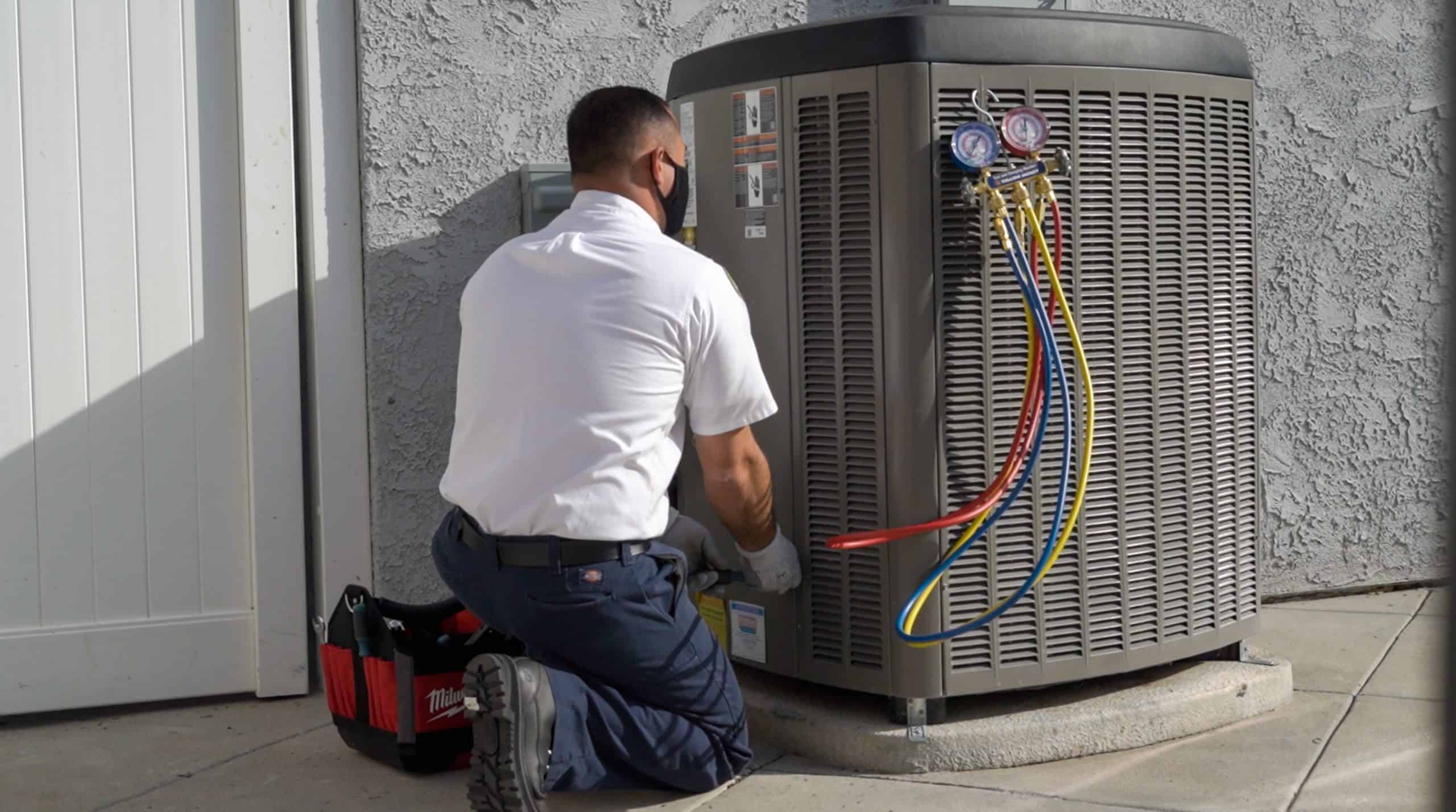Energy-Efficient A/c Solutions to Save on Energy Bills
As power costs continue to rise, the value of energy-efficient HVAC systems comes to be increasingly evident. These systems not only promise significant savings on utility bills but additionally add to a much more lasting future by decreasing power usage. With various options offered, including geothermal heatpump and ductless mini-splits, homeowner deal with a wide variety of options that can enhance convenience and air top quality. Comprehending the key attributes and upkeep needs is crucial to maximizing these benefits. What elements should be focused on when choosing the right system for your demands?
Benefits of Energy-Efficient Cooling And Heating Equipments
Energy-efficient HVAC systems supply various benefits that extend past plain price savings. One considerable benefit is the reduced ecological impact. By consuming less energy, these systems add to lower greenhouse gas exhausts, assisting to combat climate adjustment and promote sustainability. This aligns with boosting societal needs for eco-friendly practices in property and business setups.
In addition, energy-efficient a/c systems frequently provide improved convenience degrees. Much of these systems feature innovative modern technology that enables much better temperature level control and boosted air quality (DMAKS HVAC). This brings about a much healthier interior atmosphere, which is especially important for people with allergies or respiratory system problems
Moreover, spending in energy-efficient a/c systems can improve residential or commercial property value. As more consumers focus on power performance, homes and buildings furnished with these systems may attract higher proposals in the real estate market.
Sorts Of Energy-Efficient HVAC Options
How can house owners and companies select one of the most appropriate energy-efficient a/c alternatives for their requirements? The market uses a variety of energy-efficient a/c systems, each created to improve comfort while lessening power intake.
One choice is the variable cooling agent circulation (VRF) system, which successfully controls the temperature in numerous areas within a building. This system adjusts its refrigerant flow to match the preferred temperature level, leading to substantial energy financial savings.
Another preferred choice is geothermal heat pumps, which use the planet's steady temperature to warm and great spaces. By transferring warm to and from the ground, these systems show excellent effectiveness, particularly in modest environments.
Furthermore, ductless mini-split systems offer an energy-efficient choice for homes lacking ductwork. These systems permit zone-specific heating & cooling, decreasing energy waste in unoccupied locations.
Last but not least, high-efficiency heaters and ac system, with innovative SEER and AFUE rankings, supply trusted environment control while consuming much less power than typical versions. By assessing these options, home owners and services can choose a cooling and heating system tailored to their details requirements and energy effectiveness goals.
Secret Attributes to Take Into Consideration

Next, explore the sort of compressor utilized in the system. DMAKS HVAC. Variable-speed compressors can adjust their outcome to match the official site heating or cooling demand, leading to enhanced comfort and power financial savings compared to single-speed designs. Additionally, seek systems equipped with wise thermostats that offer programmable setups and remote accessibility, enabling for much better control over energy intake
One more vital feature is the system's air filtering ability. High-efficiency filters can improve interior air high quality and reduce energy consumption by making sure the system operates effectively. Think about the type of cooling agent utilized; contemporary systems commonly utilize green refrigerants that have a lower ecological impact.
Last but not least, make sure that the system is compatible with zoning modern technology, which enables personalized temperature level control in different locations of your home, improving convenience while reducing power usage.
Tips for Choosing the Right System


Following, take into consideration energy performance ratings, particularly the Seasonal Energy Effectiveness Proportion (SEER) for cooling down systems and the Annual Fuel Use Performance (AFUE) for heating unit. Greater scores suggest greater efficiency, which can result in significant cost savings on utility costs in time.
Additionally, examine the kind of heating and cooling system that finest fits your way of life and budget plan. Alternatives consist of air conditioning, ductless mini-splits, and heatpump, each with its very own set of benefits and downsides.
Do not ignore the significance of appropriate installation and sizing; an inaccurately sized system can result in ineffectiveness and boosted wear. Finally, speak with a professional HVAC professional to get experienced referrals tailored to your home's unique requirements. This comprehensive technique will make sure that you choose an energy-efficient heating and cooling system that meets your demands and budget properly.
Upkeep for Optimal Performance
As soon as the ideal cooling and heating system is in place, continuous upkeep ends up being crucial to making certain ideal performance and longevity. A well-kept system operates better, resulting in reduced power usage and reduced energy costs. Regular inspections and tune-ups should be set up at the very least twice a year-- when before the air conditioning period and as soon as prior to the home heating period.

Home owners need to likewise be attentive concerning checking their HVAC system's efficiency. Unusual sounds, fluctuating temperatures, or boosted energy expenses can show underlying concerns that call for instant focus. By attending to these concerns promptly, homeowners can stop expensive repair services and extend the life-span of their systems.
Investing in an upkeep plan with a qualified service technician not only enhances effectiveness however also provides assurance, recognizing that the system is operating at its ideal. DMAKS HVAC. Regular upkeep is as a result important for sustaining power efficiency and lowering overall functional expenses
Conclusion
Finally, click for source energy-efficient HVAC systems offer a practical remedy for reducing utility costs while enhancing convenience and air quality. By incorporating advanced technologies and options such as geothermal heatpump and ductless mini-splits, homeowner can achieve substantial energy cost savings and add to environmental sustainability. Careful factor to consider of system attributes and ongoing maintenance better ensures ideal efficiency, making energy-efficient systems a sensible financial investment for both economic and ecological advantages.